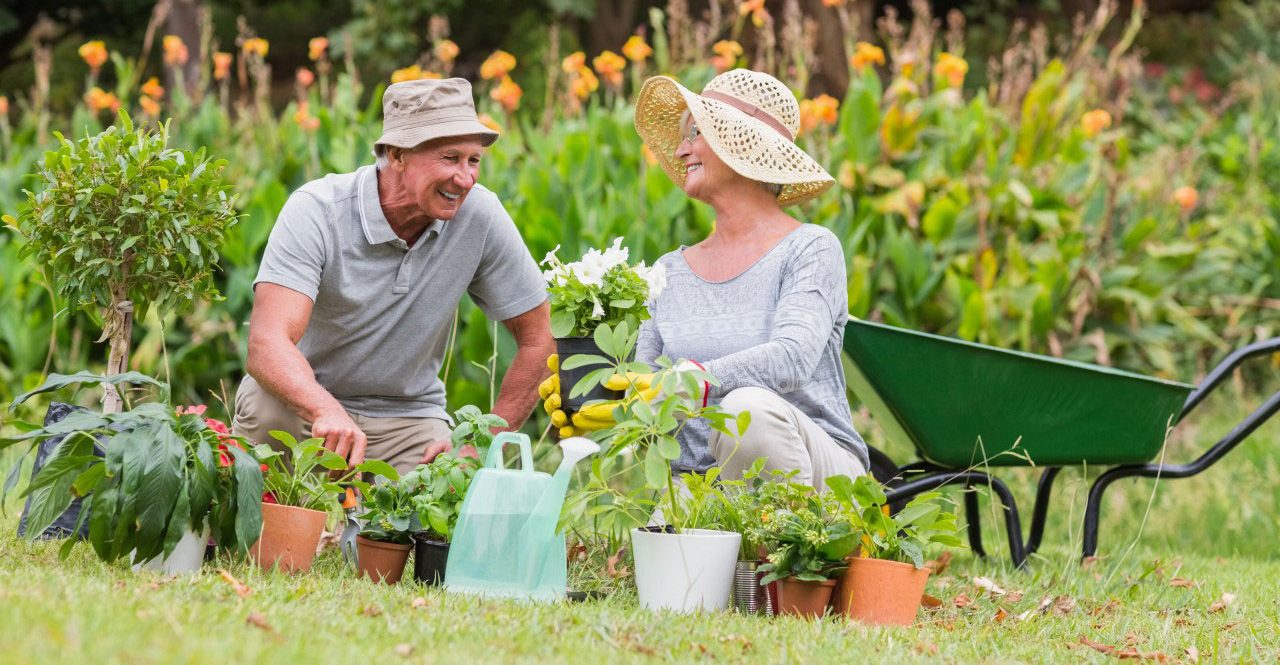Gardening and Landscaping to Reduce Summer Stress

Digging in the dirt is therapeutic.
When you prune peonies and plant petunias, you do more than beautify your garden. You also burn calories, improve your mood, and give your mind a break from the stresses of everyday life. Digging in the dirt, it turns out, is therapeutic.
How gardening buffers stress
If you feel more relaxed after spending time in the garden, there are a few good reasons for your calmer state of mind. Gardening steers your thoughts toward the repetitive, soothing actions of digging and planting, and away from your demanding job, marital issues, and other stressors. It also eases your mind by reducing levels of stress-related hormones in your body.
During a 2011 study, researchers in the Netherlands gave participants a stressful task, and then assigned them to 30 minutes of either gardening or reading. Both activities led to a reduction in levels of the stress hormone, cortisol, but gardening was an especially potent cortisol reducer. Those who gardened were also in a better mood afterward.
Playing in the dirt might itself have a calming effect on your brain. A few years ago, researchers in England discovered that a type of bacteria found in soil stimulated the production of the “feel-good” chemical, serotonin, in mice. Low serotonin levels have been linked to depression. Though these results are preliminary, author Chris Lowry says they “leave us wondering if we shouldn’t all be spending more time playing in the dirt.”
The weather outside can enhance your mood even more. Researchers have found that simply spending time outdoors in the sunshine can help you feel more upbeat and happy. The mood and energy boost you feel while basking in the sun’s warmth happens as sun exposure stimulates serotonin production.
You don’t need to devote a full afternoon – or even 30 minutes – to your garden. There’s evidence that spending as little as five minutes outdoors surrounded by green grass and flowers can improve your sense of well-being. The experience of being surrounded by nature is so curative that many hospitals around the country have planted healing gardens, where patients can go to get a respite from the stress of being sick.
Other health benefits
While improving your emotional state, gardening also does wonders for your physical health. An hour of planting and weeding burns almost 350 calories and works most major muscle groups. A study from Kansas State University found that gardening helps keep older adults in shape, even strengthening their hand muscles. “One of the things we found is that older adults who are gardeners have better hand strength and pinch force, which is a big concern as you age,” said Candice Shoemaker, PhD, Kansas State professor of horticulture.
Working in the garden also offers a potent brain boost. A study published in the Journal of Alzheimer’s Disease found that gardening and other physical activities increased gray matter volume in the brains of older adults, and reduced their risk of Alzheimer’s disease.
Good nutrition is yet another benefit of having a home garden. When you grow your own fruits and vegetables, you’re likely to eat healthier. Planting a variety of colorful produce – tomatoes, peppers, strawberries, spinach, beets, carrots – will enhance the vitamin and mineral content of your daily meals.
Stay safe in the garden
Gardening is good for you, but being outdoors all day can have some risks – particularly sun exposure and bug bites. Before you go outside, apply an insect repellant containing DEET to keep off the biting ticks and mosquitoes that transmit diseases like Lyme and Zika. Also smear on a layer of SPF 30 or higher sunscreen to shield your skin from sunburn, premature aging, and skin cancer. Add a wide-brimmed hat and sunglasses to protect your head and eyes.
Wear gloves when using sharp equipment or handling chemicals that could cause skin irritation. And drink plenty of water, especially when the temperature is high, to prevent dehydration.
Updated:
August 03, 2021
Reviewed By:
Janet O’Dell, RN